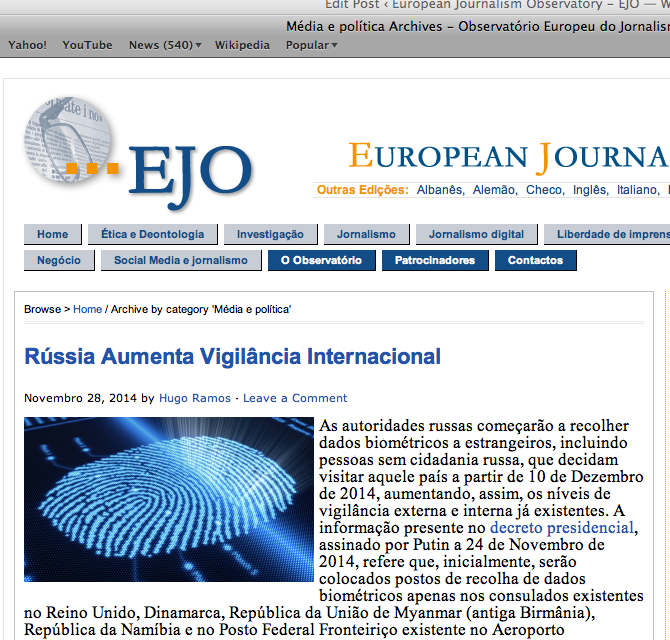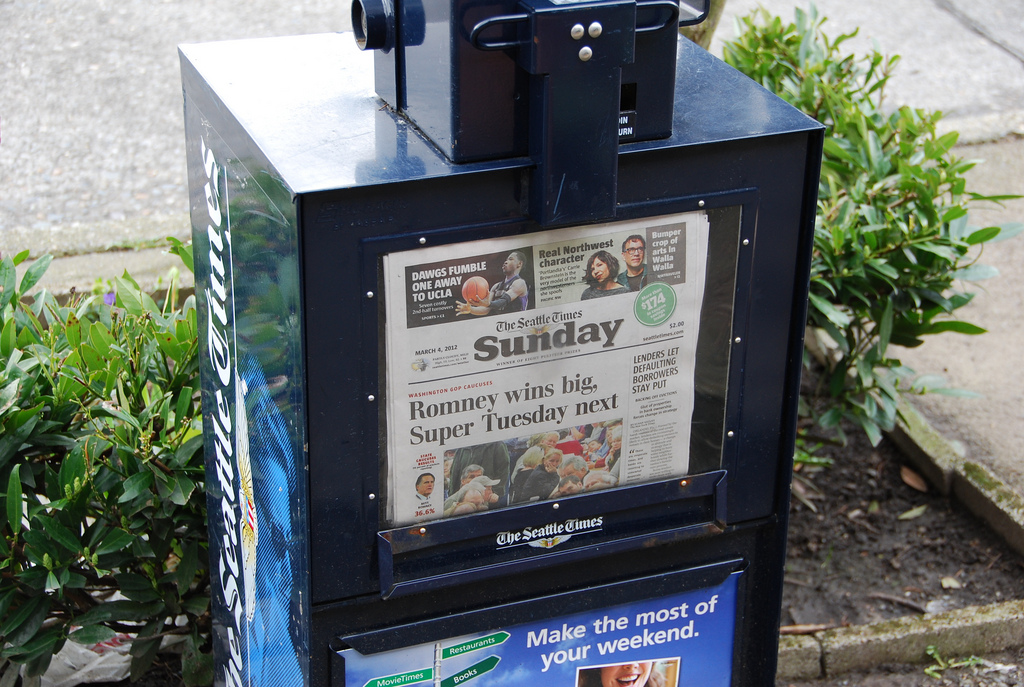The New York Times and other media outlets in the United States were slammed by readers and bloggers after not reprinting controversial cartoons of Charlie Hebdo in the aftermath of the terrorist attack last week. One criticism so incensed the Times’ executive editor Dean Baquet that he called a journalism professor an “asshole” on Facebook.
Marc Cooper, a journalist and associate professor of professional practice at University of Southern California, had called the Times’s decision not to run any of Charlie Hebdo’s cartoons “absolute cowardice.” On his Facebook page he posted a polemical question to Baquet. “Exactly how many people have to be shot in cold blood before your paper rules that you can show us what provoked the killers? Apparently 23 shot including 11 dead is not enough.”
“Dear Marc,” Baquet responded in a comment on Cooper’s Facebook page. “Appreciate the self righteous second guessing without even considering there might be another point of view. Hope your students are more open minded. Asshole.”
When Politico asked Baquet about the comment, he responded by email: “Lots of people have disagreed with my decision. Some of them are in The Times. I get that. Mr Cooper’s comment was nasty and arrogant. So I told him what I thought.”
“Stand by Charlie Hebdo and inform your public, Run the cartoons.”
One of the people who had also criticized the decision was media scholar and blogger Jeff Jarvis. He called the Times’ decision not to publish the cartoons “bullshit”: “[I]f you’re the paper of record, if you’re the highest exemplar of American journalism, if you expect others to stand by your journalists when they are threatened, if you respect your audience to make up its own mind, then damnit stand by Charlie Hebdo and inform your public. Run the cartoons.”
“There is a line between gratuitous insult and satire, most of these are gratuitous insult.”
In a blog post by the Times’ public editor Margaret Sullivan Baquet defended his decision not to publish the cartoons: “We have a standard that is long held and that serves us well: that there is a line between gratuitous insult and satire. Most of these are gratuitous insult.”
Other American media outlets like the Associated Press, CNN, Fox News, NBC and MSNBC also decided against publishing or broadcasting the cartoons. While they uphold the freedom of speech, they don’t want to be seen as disseminating content that some readers or viewers might find insensitive or offensive. In contrast, online media like BuzzFeed, the Huffington Post and Gawker ran some of cartoons and pointed out how other outlets manipulated photos to avoid showing details. As Bloomberg and Gawker reported, the New York Times had printed offensive cartoons in the past, before Baquet’s tenure as executive editor.
Was generating traffic a motive for reproducing the original cartoons?
Matthew Ingram talked to staffers at online outlets and found a genuine interest in defending the freedom of speech. At the same time he wondered, if generating traffic was also one of the motives. “Did some outlets also run the images in part because they knew that they would be controversial and therefore good for traffic? No one will admit this, of course, for obvious reasons — but I can’t help thinking that it may have played a partial role, even for those who felt a duty to support free speech.”
Similar to the Times, the Guardian, in the UK, also decided not to publish any of the Charlie Hebdo cartoons, although many European media did reproduce the images. An editorial in the Guardian laid out the reasoning behind supporting Charlie Hebdo’s right to print whatever it wants and refusing to show its cartoons. “The key point is this: support for a magazine’s inalienable right to make its own editorial judgments does not commit you to echo or amplify those judgments. Put another way, defending the right of someone to say whatever they like does not oblige you to repeat their words.”
This week, a new edition of the magazine will be published
This week, Charlie Hebdo’s surviving journalists will be putting out a new edition of the magazine, with a picture of Muhammed, weeping, and holding up a sign: ‘je suis Charlie’ and the headline, ‘Tout est pardonne’ on the cover. As newspapers debate whether to reproduce the image, last week’s row in the US could be replayed.
While many newspapers plan to publish the image in some form. Newspapers around Europe, including Libération, Le Monde and Frankfurter Allgemeine, have used the image online, however most public broadcasters have either shown it briefly, or not at all.
The BBC showed it briefly during a newspaper review on Newsnight. In the US, the Washington Post, USA Today, LA Times, Wall Street Journal, The Daily Beast and CBS News ran the cover but the New York Times did not. In Australia, the ABC showed the image of the cartoon on its 24-hour rolling news programme but with a warning to viewers. The Guardian also chose to reproduce the cover as, it said: “its news value warrants publication.”
pic credit: Flikr, Ben Ledbetter Architect
Tags: Cartoons, Censorship, Charlie Hebdo, New York Times, Press freedom, Satire















































